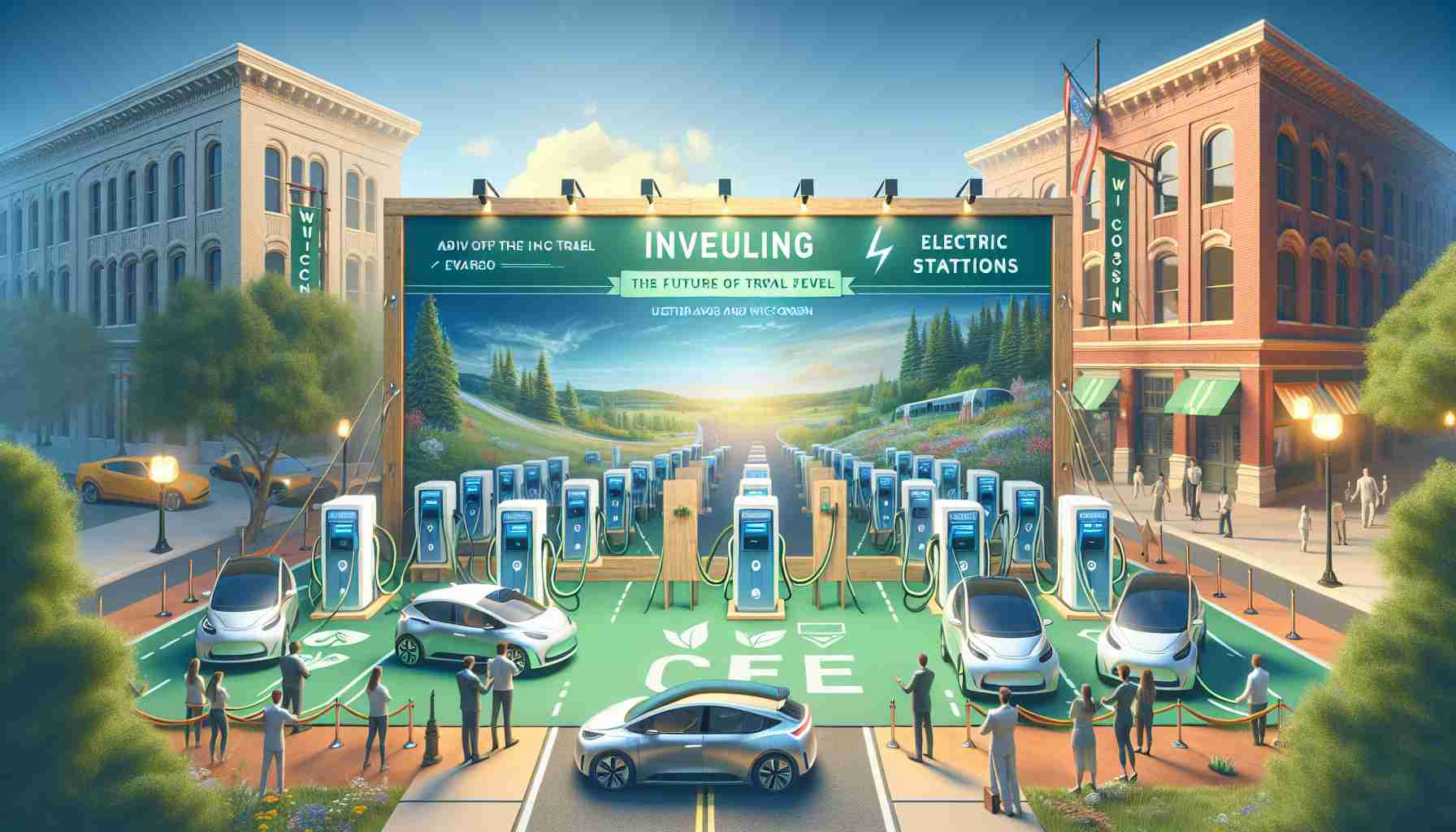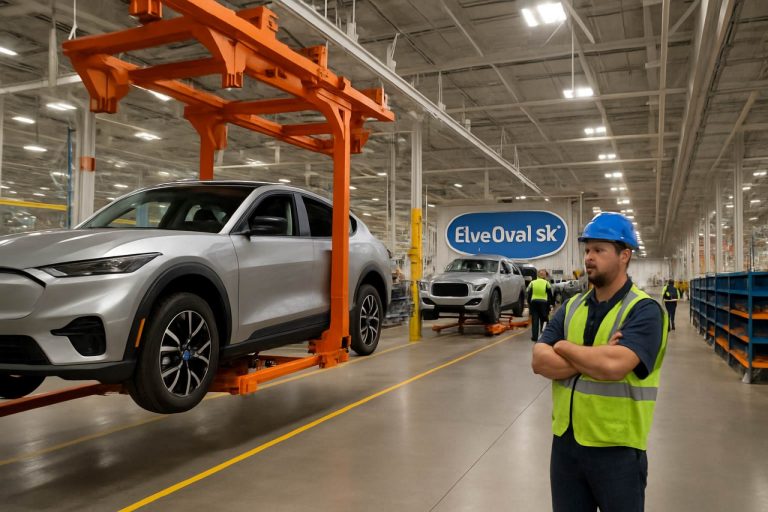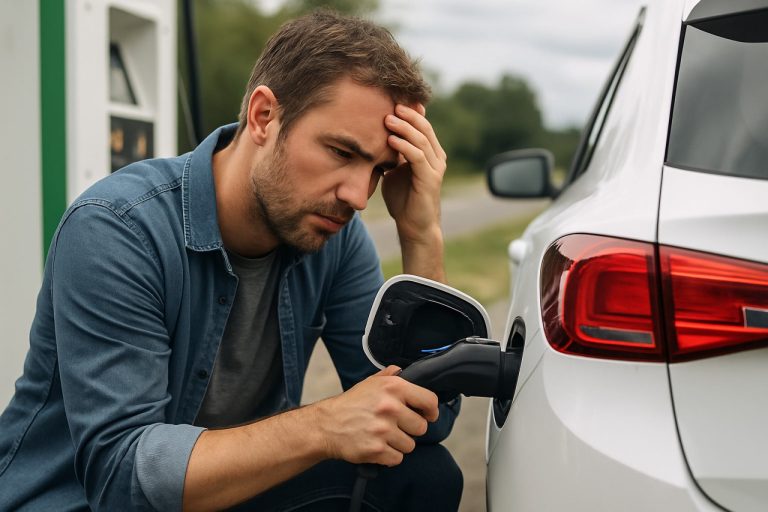
Wisconsin is stepping into the future. The state has launched its first electric vehicle (EV) charging stations, marking a significant milestone in the transition to cleaner transportation. Recently installed at various Kwik Trip locations across Ashland, Menomonie, and Chippewa Falls, these stations symbolize a commitment to expanding the EV infrastructure throughout Wisconsin.
More charging stations are on the way, with several cities in the south-central region slated to receive new installations soon. Among the upcoming locations are popular spots like Citgo in Oxford, Road Ranger in Tomah, and several Kwik Trip stations scattered throughout the state.
Governor Evers emphasized the importance of enhancing Wisconsin’s transportation framework. He noted that boosting the EV infrastructure is essential for accommodating the needs of a modern workforce, while promoting eco-friendly travel solutions. The ongoing efforts aim to create a network of fast-charging stations, making electric vehicle use more accessible for residents and visitors alike.
This transformative initiative is backed by the National Electric Vehicle Infrastructure Formula Program, supported by a substantial investment of $23 million from the Wisconsin Department of Transportation. As Wisconsin continues to develop its EV charging network, it positions itself as a leader in sustainable transportation, paving the way for a greener future.
Wisconsin’s Charge Towards a Sustainable Future: New EV Infrastructure Unveiled
Wisconsin’s Growing Electric Vehicle Infrastructure
Wisconsin is making strides in the push for sustainable transportation with the launch of its first electric vehicle (EV) charging stations. Installed at various Kwik Trip locations in Ashland, Menomonie, and Chippewa Falls, these stations mark a critical step in establishing a robust EV infrastructure throughout the state.
Upcoming Charging Stations: Locations and Expansion Plans
The initiative does not stop here, as more charging stations are set to be installed in the near future. Upcoming locations include popular hubs such as Citgo in Oxford, Road Ranger in Tomah, and additional Kwik Trip sites. This expansion is aimed at enhancing accessibility and convenience for EV users across Wisconsin, making long-distance travel more feasible for electric vehicle owners.
Government Support and Funding
Governor Tony Evers has highlighted the importance of enhancing Wisconsin’s transportation framework to meet the needs of a modern workforce, promoting eco-friendly alternatives. The state’s efforts are significantly supported by the National Electric Vehicle Infrastructure (NEVI) Formula Program, which has received a substantial investment of $23 million from the Wisconsin Department of Transportation. This funding plays a crucial role in developing a comprehensive network of fast-charging stations.
Pros and Cons of EV Charging Stations in Wisconsin
Pros:
– Environmental Impact: Supports reduced carbon emissions by encouraging the use of electric vehicles.
– Economic Growth: Stimulates local economies by attracting EV users and creating new jobs associated with installation and maintenance.
– Tourism: Enhanced infrastructure can attract EV-owning tourists, expanding business for local establishments near charging stations.
Cons:
– Initial Costs: The upfront costs for installation and maintenance of charging infrastructure can be significant.
– Charging Time: Despite advancements, charging times can vary, posing a challenge for long-distance travel compared to traditional fuel stations.
– Limited Range: While the network is expanding, some areas may still experience gaps in charging availability.
Trends in Electric Vehicle Adoption
As more states and cities invest in EV charging infrastructures, there is a rising trend towards EV adoption. According to industry reports, U.S. electric vehicle sales have surged year-on-year, driven by increasing consumer demand for greener options. States that develop extensive charging networks are likely to see accelerated EV adoption, making them leaders in sustainable transportation.
Insights into Future Developments
Experts predict that as battery technology improves and charging stations become more ubiquitous, the barriers to EV adoption will continue to decline. With Wisconsin’s proactive approach, the state could serve as a model for other regions aiming to tackle transportation-related challenges and environmental concerns.
Conclusion
Wisconsin’s push for electric vehicle charging stations represents a promising step toward a cleaner, sustainable transportation framework. As the state positions itself as a leader in this critical transition, residents and visitors alike can look forward to a more accessible and eco-friendly future.
For more information on Wisconsin’s electric vehicle initiatives and updates, visit the [Wisconsin Department of Transportation](https://transportation.wi.gov).



